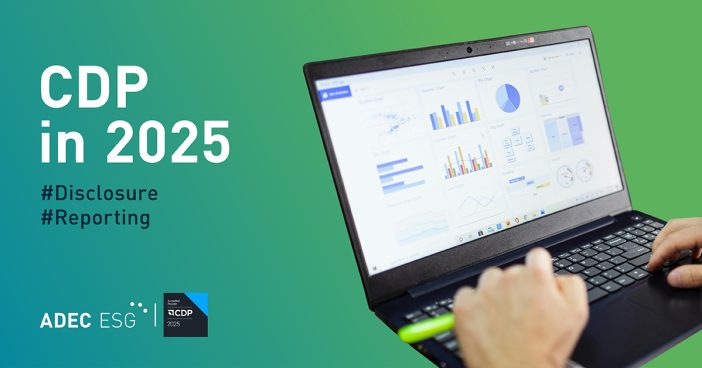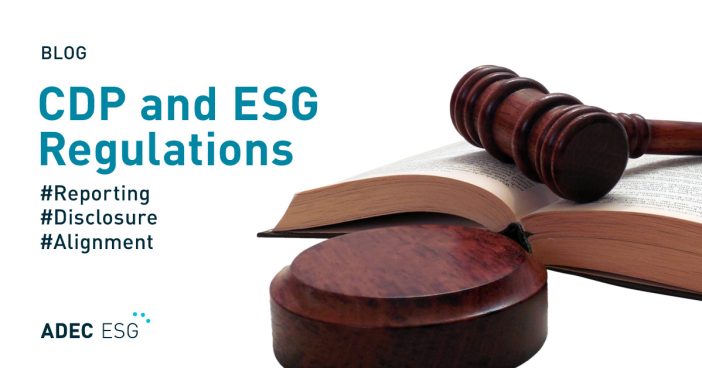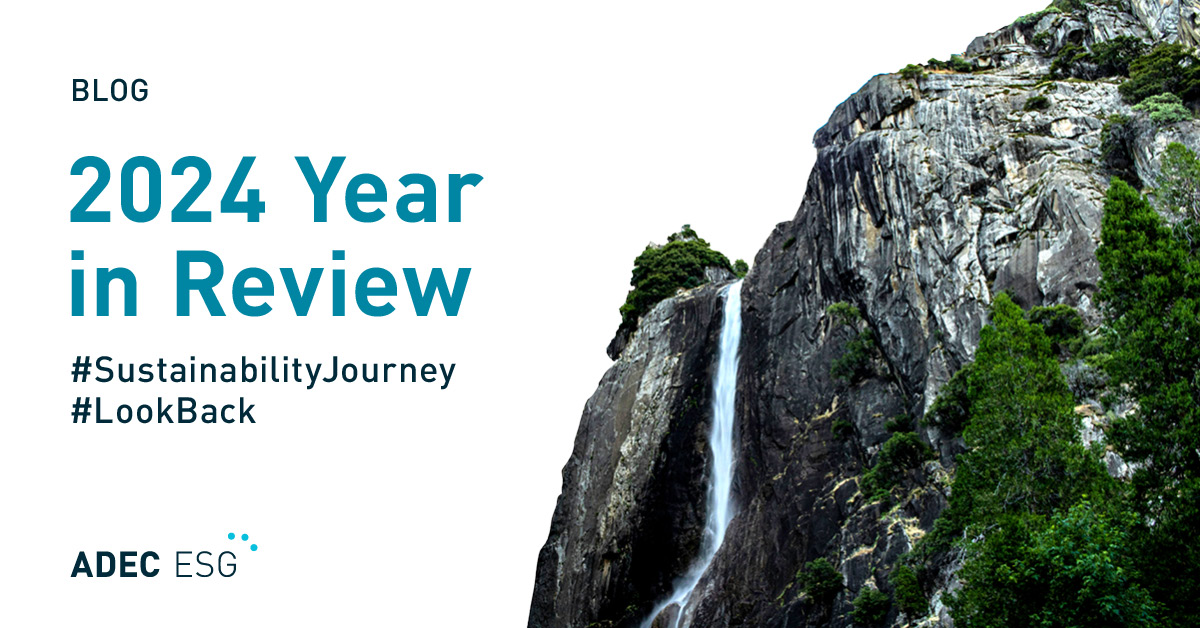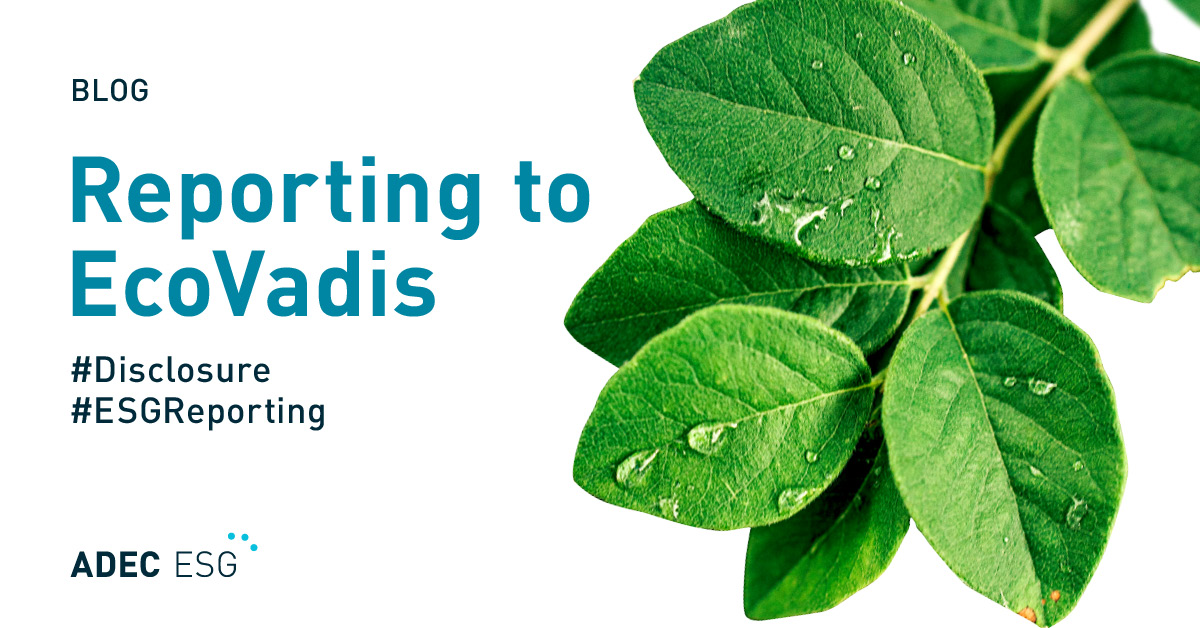In a recent webinar, Mastering CDP in 2025: A Guide to Success, we helped our audience prepare for the upcoming CDP reporting season. Below, we cover some of the main points: tips on how to report to CDP in 2025 and recommendations on how to improve your performance this year.
1. Mind the Essential Criteria.
In 2024, CDP introduced Essential Criteria to its Full Corporate Questionnaire. Each theme and each scoring level requires its own set of Essential Criteria, with Climate Change including the highest number of Essential Criteria. Climate Change also requires Essential Criteria at the Awareness and Management levels, setting a higher bar—for now—than either Water Security or Forests.
Essential Criteria are critical to optimizing your CDP reporting program. They set out specific requirements that companies must meet in order to achieve a given scoring level. This means that even when a company’s score indicates a high level of performance, if all Essential Criteria up to that level are not met, the company will receive a lower score.
For example, let’s say a company’s mock scoring shows them at a solid Leadership A-. In question 3.1.1, when asked to include details of risks that are anticipated to have a substantive effect on the organization, they specify the likelihood as “Unknown.” Because this question is Management Essential Criteria and the requirements were not met, the highest this company can score is Awareness C.
Trends in Essential Criteria across CDP themes
While Essential Criteria differ across CDP’s themes (Climate Change, Water, Forests), certain overarching topics are present across all three themes, though at different scoring levels. Below, we’ve highlighted several of these topics, including:
- Public CDP response
- Process to identify, assess, and manage risks
- Board-level position with accountability
- Board-level competency
- Target setting
- Supplier engagement
- No significant exclusions
Sector-specific criteria
Certain sectors, such as Financial Services and Oil & Gas, have Essential Criteria that differ significantly from the General sector criteria. To achieve Leadership A-, for example, Oil & Gas Essential Criteria require responders to provide details of their low-carbon research and development.
2. Consider CDP’s SME questionnaire, if your company qualifies.
Recognizing the need to address the environmental reporting needs of smaller businesses, CDP officially released its small to medium enterprise (SME) questionnaire in 2024. This streamlined, tailored version of its full corporate questionnaire is designed for companies with fewer than 1,000 employees and less than US$250 million in annual revenue.
The aim of the SME questionnaire is to reduce the time and resources required to complete a CDP questionnaire while still maintaining the methodology’s rigor and integrity, making it easier for SMEs to participate in environmental disclosure and demonstrate leadership in sustainability.
The SME questionnaire does NOT include questions on:
- Dependencies and impacts
- Competency or incentives
- Climate scenario analysis
- Pricing externalities
- Public policy engagement
It also includes simplified questions on:
- Process to identify, assess, and manage risks and opportunities
- Responsibility for environmental issues
- Value chain engagement
- Verification
If your company qualifies, we recommend considering the SME questionnaire, as it provides a streamlined pathway for SMEs to disclose and can serve as a roadmap for your broader sustainability strategy and initiatives.
3. Be familiar with policies on public disclosures and scores.
While your disclosure is always visible to certain CDP requesters, such as CDP Capital Markets and requesting customers, you otherwise have the option to make your disclosure public or private.
When choosing whether or not to make your disclosure public, keep in mind that:
- Public disclosure is a requirement to qualify for Leadership A- across all themes.
- If you choose to make your disclosure public, the entire disclosure will be public (behind a paid license structure that CDP plans to introduce).
- Many companies also opt to upload their disclosures to their own websites. This allows them to be fully public and compliant with EcoVadis, S&P CSA, and investor indices.
4. Avoid skipping questions.
We recommend never skipping questions on any theme within CDP’s questionnaire. Skipping questions puts you on a “non-disclosure” scoring route and can be very punitive in terms of point allocation.
Note: Keep in mind that when exporting from CDP’s portal to a Microsoft Word document, any skipped questions and blank columns will be excluded.
5. Aim for completeness.
Expanding on our previous tip, we recommend aiming to complete all questions and columns that are open to you. In addition to points potential, many questions require you to earn full Disclosure points (i.e. answer the question completely) to even qualify for Awareness points.
Avoid leaving any blanks—a response of “do not know,” “unknown,” or “other, please specify” (with clarifying text) is far better than leaving the answer blank.
Note: An answer of “0” or $0” should only be entered if true and not used as a placeholder figure.
6. Understand the CDP score appeals process.
Think there may be an error in your score? CDP has a formal appeals process in place, allowing companies to request a re-score of certain questions or categories. While this year’s deadline for appeals has already passed, it’s important to be familiar with this process every year ahead of time, as the window for appeals is typically quite narrow.
This process is initiated by your Direct Account Manager or through CDP’s HelpDesk. A CDP Accredited Solutions Provider will also be able to help guide you through this process. There is typically no fee associated with the appeal. Once you have identified which questions or categories you think may have been mis-scored, provide a reasoning for your appeal and submit the appeals form to CDP. Note that, should you submit an appeal, CDP reserves the right to look at other questions or the entire response, which may also impact your re-score results.
Tips for identifying a potential case for appeal:
- Bird’s-eye view: On the Excel Score Report issued to you by CDP, you’ll be able to see how you scored across each category (e.g. Energy, Context, Value Chain Engagement, Governance, Risk Disclosure, etc.). Check for trends in your category-level scores and assess if any stand out as unusual. Did you score a D amid a field of A’s and B’s? Why might that have been the case?
- Essential Criteria: As previously stated, be very aware of Essential Criteria, as this may be a likely cause for an unexpectedly low score. If you did not complete all Essential Criteria for your scoring level, you may not have a case for appeal.
7. Anticipate a higher bar.
CDP’s methodology changes every year as the nonprofit works to stay up to date with the latest in climate science and environmental disclosure practices. Alignment with other frameworks and standards—including the TCFD and TNFD recommendations, ISSB IFRS S2, EU Taxonomy, and ESRS—and partnerships with policymakers and sustainable coalitions help drive CDP’s progress as it continues to raise the bar on what leadership in sustainability looks like.
Higher standards (such as Essential Criteria) and broader scope (as the SME questionnaire brings smaller businesses into the fold) demonstrate CDP’s ambition to push sustainability and ESG frontrunners beyond regulatory requirements and give them tools to lead organizations into a more sustainable future. View our full webinar, Mastering CDP in 2025: A Guide to Success, on-demand for free.
ADEC ESG is a CDP Silver Climate Change Consultancy Partner in North America with decades of experience helping global companies meet their sustainability goals.
We offer a suite of services to help streamline your disclosure, including:
- CDP Questionnaire Completion (Full Corporate and SME Questionnaires)
- Scoring Assessments (Full Corporate and SME Questionnaires)
- Supplier Engagement Assessment (SEA)
- On-demand CDP support
To learn more about our CDP services, including fully customized recommendations and flexible on-demand consulting hours, contact our team.
This blog provides general information and does not constitute the rendering of legal, economic, business, or other professional services or advice. Consult with your advisors regarding the applicability of this content to your specific circumstances.




